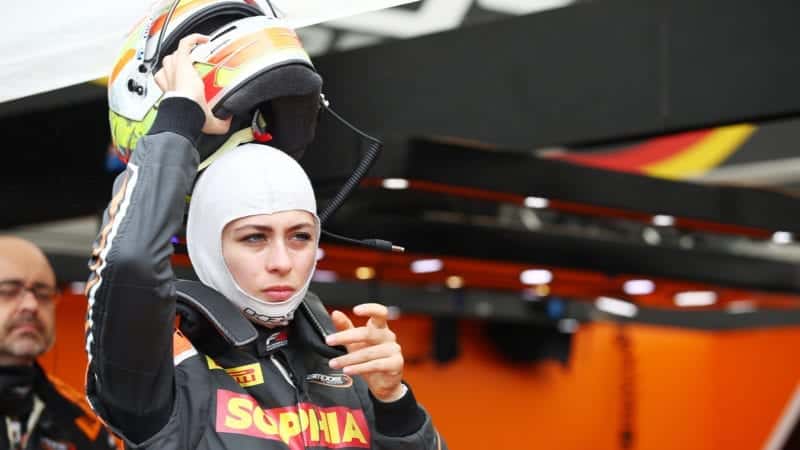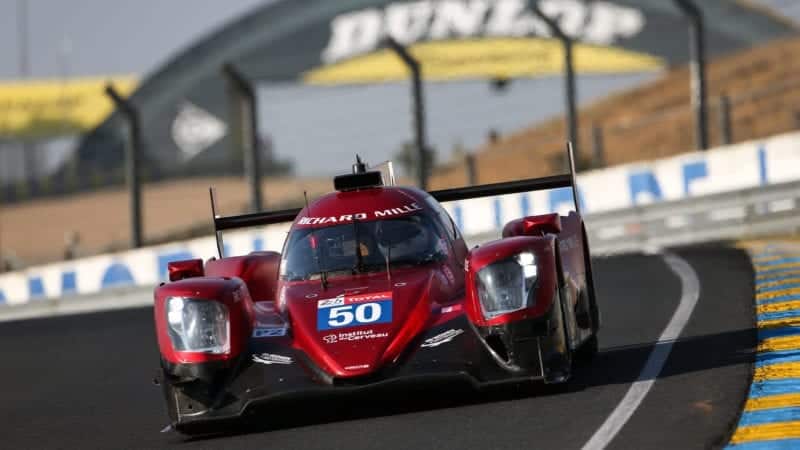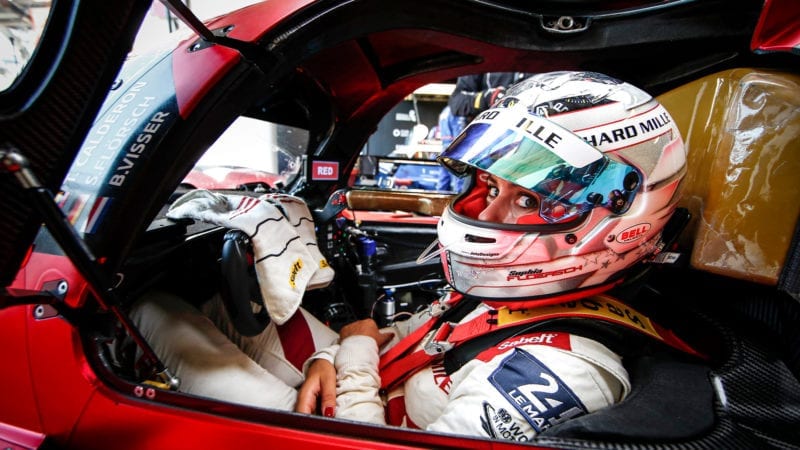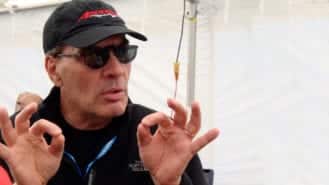“The most important thing [to progression] is money,” she says, “And if you don’t have it from your family, then you need sponsors or investors or partners, and that can be difficult to get as a woman.
“There was never really a successful woman in motor sport so you cannot really say like ‘she did it, I can do it as well.’
“So it’s difficult to find a company believing in the story you know, they always want to say they always say like ‘okay, prove it and we’ll sponsor you’ and you’re like, ‘I can prove it if we get the money!’
“We never really had a really successful woman in F1 or like the highest level, so it’s difficult to find a woman [you take inspiration from]. I have been in close contact with [DTM race winner] Ellen Lohr. She gave me many tips, especially my first year of F3.”
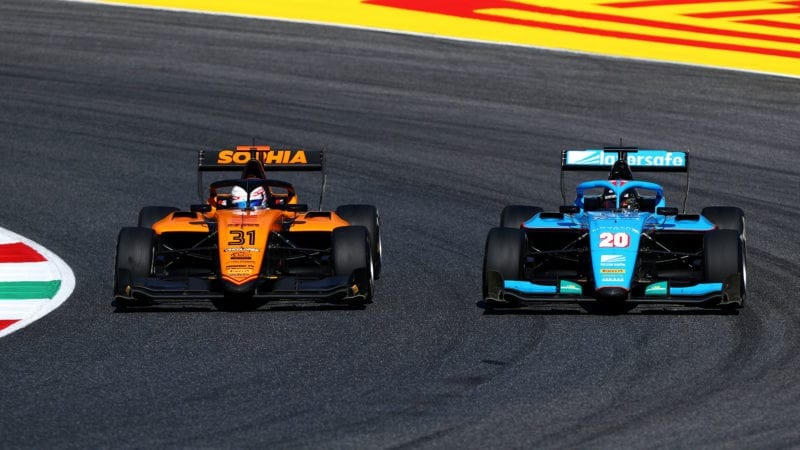
Floersch comes to Le Mans after this year’s compressed F3 season
Dan Istitene - Formula 1 via Getty Images
The Munich-native also herself galvanised by a recent Wiliams Racing documentary.
“It suddenly completely changed my mind [about Williams],” Floersch says. I saw them in a different way, and respected [Claire], her dad and especially her mum a lot more, because I just got to know the family through the film.”
“I think [Claire] is one of the toughest women in motor sport. Her family have a lot to do with female empowerment and females in racing, actually.”
Amongst various efforts in other parts of the motor sport community to give more support to women, one of the notable is the all-female W-Series.
“From W-Series to F1, it’s still a long way, with so much money needed.”
Although the new championship has been praised by some, a number of established female pros haven’t been so kind. IndyCar driver Pippa Mann called its establishment “a historic step backwards” whilst British GT champion Charlie Martin described it as “founded on segregation”. Floersch is another sceptic.
“What the W-Series is doing might be a little bit wrong,” she opines, “I mean, they’re giving some women opportunities to race, which is good. Of course if you don’t have anything [currently] or if you already stopped racing – and then through W-Series come back, it’s a great thing.
“But then the W-Series should never ever say that they are bringing the next woman to F1. Because to be honest, that’s complete bullshit.”
Floersch says that the burgeoning category is a step down from the championships she currently competes in and feels that it offers little real progression for a professional racing driver.
“Jamie Chadwick was winning W-Series, last year she did a good job on everything. She got £0.5million, but now she wants to do [the championship] again.”
